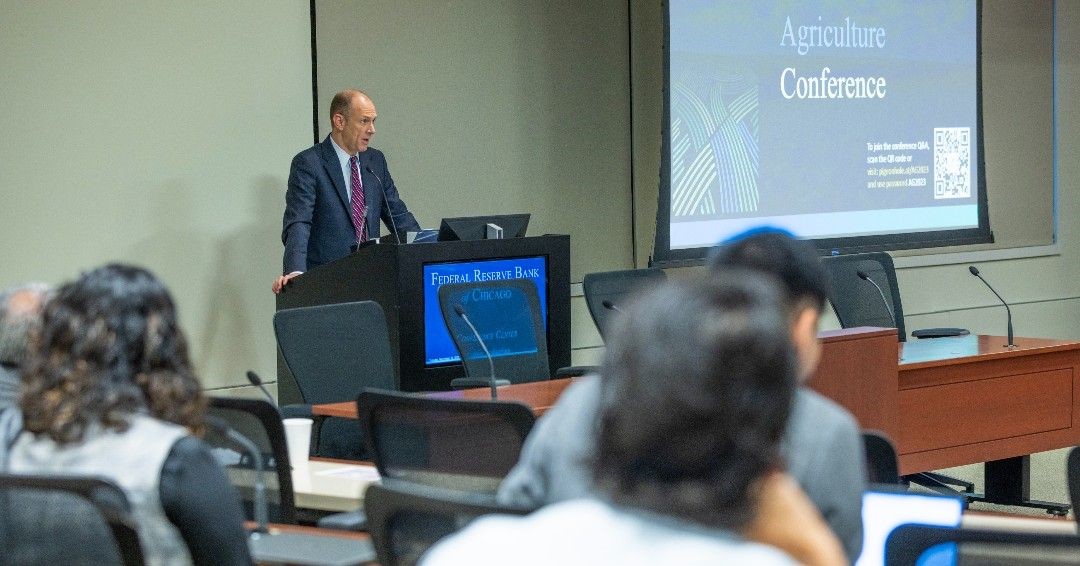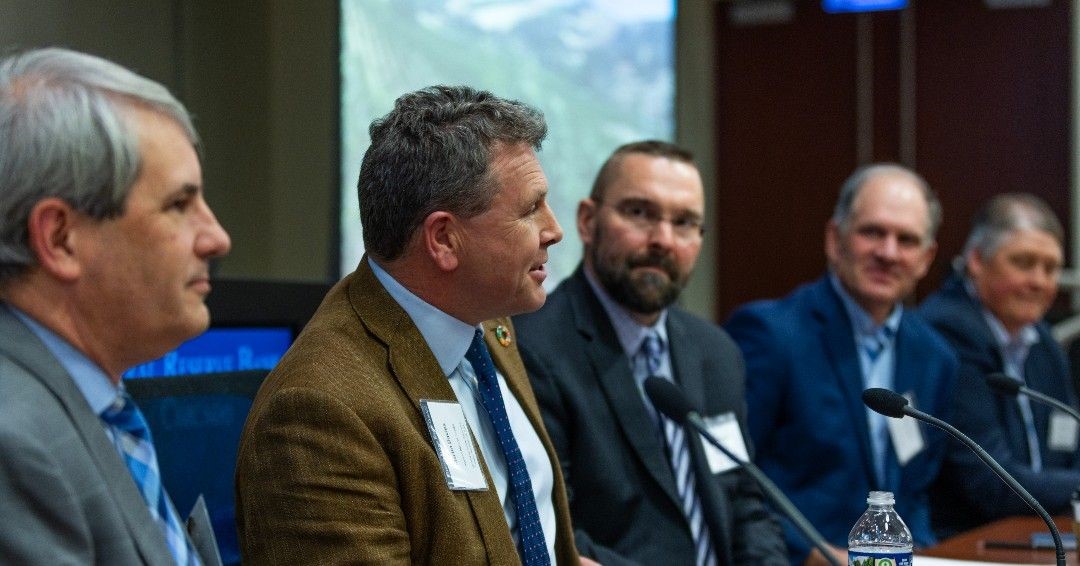by Rebecca Frantz, ALC
This November marked the 19th year of the Federal Reserve Bank of Chicago’s annual Midwest Agriculture Conference. The discussion at this year’s meeting revolved around Midwest farmland ownership and why they own it. Over the years, row crop farmland in the Midwest has been viewed as an attractive investment for individual investors and institutional groups to diversify their portfolios. With a strong agricultural market the past couple of years, and an increase in buyers – what are some of the changing factors related to investing in farmland?
Farmland Trends & Ownership
Todd Kuethe from Purdue University started the morning by sharing trends he has seen in the land market from 2020 through 2022 causing downward pressure. From 2020 through 2022 Interest rates remained low, commodity prices were strong, and farmers were optimistic. In 2023 the attitude has been positive, but these factors have started to shift over the last 12 months creating a choppy farmland market. Sales and attitudes in the countryside have begun to shift from optimism to uncertainty. 
Although the buyer pool for farmland has continued to expand over the years with increased investor interest, the number one buyer of farmland is still farmers at nearly 60% according to the 2022 Iowa State University Land Values Survey.
Emerging Issues in Farmland Ownership
Wendong Zhang with Cornell University continued the conference with a discussion on ‘Energy Infrastructure and Farmland Market.’ A common question landowners have been asking is how energy infrastructure plays into the value of their land - and it really depends. Wendong shared multiple studies that have been conducted around this topic for different energy sources such as wind, solar, broadband internet, and pipelines.
Wendong stated that parcels of land within two miles of TMLs or electrical substations enjoyed a 10-20% price premium, especially post 2020 following a study conducted in the state of New York. In other areas of the United States these premiums could vary.
A strong and more recently politicized topic around farmland is foreign ownership. Mykel Taylor with Auburn University shared some research from AFIDA, regarding foreign ownership demographics for land that is owned vs. leased, their motivation for wind and solar, and potential policy around this topic.
Based on AFIDA sale records with a focus on 11 midwestern states, Mykel & Wendong’s research showed that foreign buyers in the Midwest pay a 13.7% premium for agricultural land over domestic buyers. The top 3 countries for foreign owners of land in the US include; Canada, Netherlands, and Italy.
“Several pieces of information gleaned from the AFIDA database reveal aspects of the foreign ownership issue that are not commonly known. The first is that much of the cropland held by foreign entities is actually being leased for 10 years or more, rather than being purchased outright. Second, wind and solar development appears to be a main motivator for foreign investment in the U.S. right now. These factors should be taken into account when policy makers consider how to navigate this topic.” Mykel Taylor, Auburn University.
Farmland Investment
The afternoon session was comprised of a farmland investment panel. Members of the panel discussed their viewpoints on investment criteria, future investments, things to watch out for in the changing markets, and what is still driving today’s high prices. Comments from Bob Stewart of Stewart Farms in Illinois highlighted that farmers are willing to pay a premium if a parcel adjoins a farm currently owned but are less likely to go out of their way 10-20 miles to purchase a farm and borrow money at 7-8% interest. Recent record-breaking farmland sales in the Midwest have typically included a neighboring landowner as a top bidder. The excess cash in the countryside has started to dry up from the pandemic time period and less potential buyers are bidding on auctions.
Comments from the institutional members on the panel shined light on the ever-changing topic of environmental goals and sustainability trends that institutional buyers and clients are wanting. Carbon sequestration and water rights as important factors for purchasing not only in the Midwest but anywhere in the US or World. Investment groups have also backed off recently due to increased interest rates and opportunities to invest funds in other markets.
Doug Hensley with Hertz Farm Management, who sat on the panel, shared some insight on what he is seeing in the countryside. “We’ve seen some regional weakness, even in land values, and we’re all being reminded that values don’t go up indefinitely. It’s still far from a weak market, but there is not as much depth or overall demand compared to a year ago.”
Takeaway
In conclusion, the Midwest Agriculture Conference provided invaluable insights into emerging conversations we are having in the agricultural industry. From discussions on what factors are driving farmland values to foreign ownership of US farmland, it was evident these are topics that members of RLI should keep front of mind.
Photos courtesy of the Federal Reserve Bank of Chicago media team. Click here to watch a replay of the speakers.

Rebecca Frantz is an RLI member, Accredited Land Consultant, and land specialist at Hertz Farm Management. She grew up in Johnson County, Iowa on her family’s century farm. Her passion for Midwest land, diligent work ethic, and life experiences have led her to where she is today serving clients in the eastern central part of Iowa.